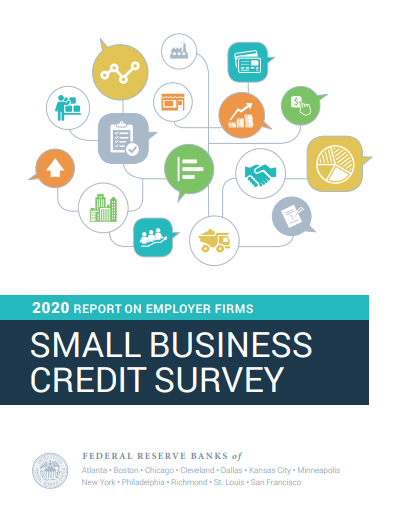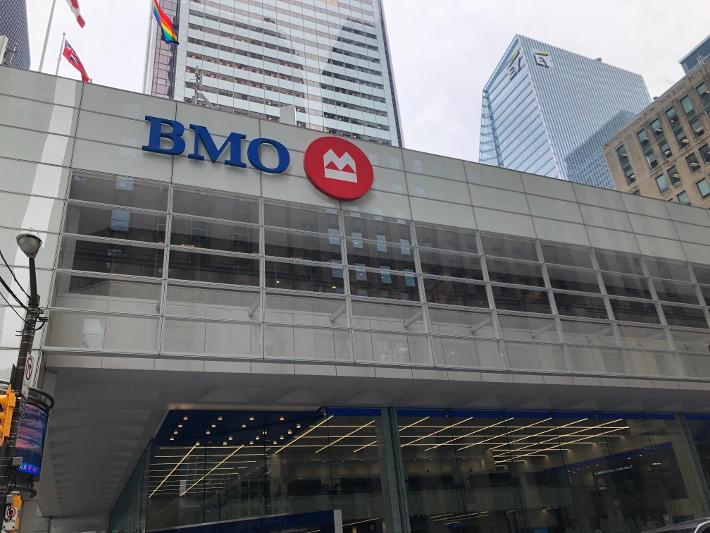Business Lending
That’s All Folks? – The PPP Money Is Already Gone
April 15, 2020
Update 4/16/20: The SBA has put up an official statement on its website that says “The SBA is currently unable to accept new applications for the Paycheck Protection Program based on available appropriations funding. Similarly, we are unable to enroll new PPP lenders at this time.”
A number of fintech companies have just joined the Paycheck Protection Program, but they’re a tad late to the PPParty. On Twitter, Senator Marco Rubio, one of the co-sponsors of the CARES ACT that developed this program, confirmed the rumors that the well had run dry. “Sadly it appears #PPP will grind to a halt tonight as the limit on $ allocated to guarantee #PPPloans about to be hit.”
Sadly it appears #PPP will grind to a halt tonight as the limit on $ allocated to guarantee #PPPloans about to be hit.
Now 700000 small business applications are in limbo & no new loans will be made until the game of chicken in Congress ends & additional $ approved.
Inexcusable
— Marco Rubio (@marcorubio) April 15, 2020
Here’s the math
Congress approved $349 billion to guarantee #PPP
At 2pm today had over $300 billion in approved #PPPloans
Need $10 billion to cover fees & processing
When we reach $339 billion limit PPP will stop until they end with the ridiculous games & approve more funds
— Marco Rubio (@marcorubio) April 15, 2020
The SBA has often made reference to total funds “approved” when calculating its numbers rather than loaned out, so if you’re a business that has already been approved, then presumably funds have already been allocated for your business and you will still receive them. But if your application is pending, well it’s possible that funding may require additional congressional authorization. That however, as noted by Rubio’s remarks, will require some political compromise.
Update: 4/16 8 AM: Senator Rubio said on Fox Business that the PPP program was now frozen after having reached its limit and has stopped.
We’ll update this as more information becomes available.
Small Business Credit Survey Proves Itself to Be a Blast From the Past
April 15, 2020 Over a month into a nationwide lockdown and it can prove hard to remember what things were like before this. The ease of going to a restaurant and sitting in, the buzz of attending a packed concert, or even the unappreciated experience of not having to maintain six feet between yourself and whoever is beside you.
Over a month into a nationwide lockdown and it can prove hard to remember what things were like before this. The ease of going to a restaurant and sitting in, the buzz of attending a packed concert, or even the unappreciated experience of not having to maintain six feet between yourself and whoever is beside you.
As well as these small joys, for many small business owners the prospect of growth is a memory, as the latest Federal Reserve Small Business Credit Survey highlights. Released in March, the report is a summary of how small business owners acted and felt towards credit in 2019, as well as how they viewed their future in 2020.
While that’s certainly a grim reminder, the report featured an interesting question which appears prescient in the wake of the impacts of covid-19. “What actions would your business take in response to a 2-month revenue loss” was put to the 5,514 respondents, which were composed of owners of businesses that employed between 1 and 499 employees (coincidentally the same range for PPP loan eligibility). And the answers highlight the extent of the trouble which many small business owners currently find themselves in.
33% said they would lay off employees, 34% reported that they would rely on debt, and just 37% stated that they would reduce salaries of the owner(s) or employees. As well as these hypothetical decisions, 17% of respondents said they would shut down and 47% noted that they would use the owner’s personal funds to ride out the storm, worrying numbers given the current situation.
And while these responses prove eerie in light of what was to come, other answers reflect the optimism that 2019 yielded. 69% of firms expected revenue to increase in 2020, 44% expected their number of employees to grow, and 56% reported revenue growth on from 2018.
Outdated as the report is, it acts as an artifact of sorts: reminding the industry of what can come before the fall, and how even when things are good, many businesses are a few steps removed from serious trouble.
Should I Apply to Become a PPP Lender?
April 10, 2020 One question being posed in the small business finance community is whether or not you should apply to become a PPP lender. Unless you are a very large well-capitalized company with a deep legal and compliance bench, you probably shouldn’t.
One question being posed in the small business finance community is whether or not you should apply to become a PPP lender. Unless you are a very large well-capitalized company with a deep legal and compliance bench, you probably shouldn’t.
Here’s why:
- You must supply the capital. While a federal mechanism is being put in place to offload the PPP loans you fund, you need the balance sheet to fund the loans in the first place. Also, consider that community banks have historically expressed frustration with the guaranty process and that’s when times and loan volumes were operating at normal levels. You must be prepared for hiccups to take place that delay or even possibly prevent offloading of some or all of these loans.
- You only earn a 5% processing fee on loans under $350,000. For larger loans, it’s a smaller percentage. You can’t even charge the applicant any fees at all so your compensation is entirely dependent on the SBA to pay you. Consider that your underwriting costs may offset some or all of that fee, leaving very little room for profit.
- You must have 2019 audited financial statements available for inspection by the SBA.
And you must have either of the following:
1.
- You must already have been applying Bank Secrecy Act-level compliance prior to this crisis.
- You must have been originating at least $50 million in business loans or other commercial financial receivables per year for each of the last 3 years consistently.
OR
2.
- You must already be a service provider to a bank.
- You must already have a contract to support the bank’s lending activities.
It’s a tough bar to meet for a small and mid-sized small business financing provider, but the program isn’t really set up to become a major profit center for lending companies, it’s supposed to be a support center for SMBs to keep workers employed. Initially, many banks were hesitant to get involved because PPP participation was going to generate LOSSES for them. It still might.
So what’s the incentive to be a non-bank PPP lender? It’s a moral pursuit on the front-end rather than a financially-driven one. On the back-end, it’s a tool for lead generation, public relations, and elevating goodwill value. If such lenders are able to execute successfully, it could further develop trust for fintech with legislators, regulators, and the general public. On the other hand, however, if they perform poorly, it could reflect negatively on fintech as a whole.
So if you find yourself on the PPP lending bench, you’re not missing out financially. You can still become an agent/broker should an approved SBA lender accept you. Such a role presents limited upside financial potential, so if it’s riches you seek, the PPP doesn’t provide them.
Lastly, becoming a PPP lender certainly won’t save a dying lending company. Making loans at 1% interest to distressed and closed businesses isn’t going to somehow save a company with an already damaged loan portfolio. It’s just going to put it out of business faster.
Should you apply to become a PPP lender? That’s up to you. Good luck!
OnDeck Has Applied to Become a PPP Lender
April 10, 2020OnDeck has applied to become a lender for the Paycheck Protection Program (PPP), according to a post the company made on social media. The online lender is one of the first to publicly announce an official entry for consideration since the application went live for fintech companies Wednesday evening.
OnDeck CEO Noah Breslow said on LinkedIn, “We are excited to be one of the fintechs delivering PPP loans as a direct lender – our team has been working around the clock getting us ready and now we wait and hope we are approved soon!”
The PPP Application for Fintech Lenders is HERE
April 8, 2020The SBA finally released an individual PPP lender application for Non-Bank and Non-Insured Depository Institution Lenders on Wednesday.
Note that it doesn’t actually say “fintech” anywhere on it but that’s because fintech is a colloquial term. This Non-bank designation and the requirements therein are similar to the SBA guidance published on April 3rd that was widely believed to encompass fintech lenders.
Canadian Small Businesses Face Tough Challenges As Government Passes Over Fintech
April 8, 2020 This week the Canadian government announced its coronavirus economic relief plans. Among them are two initiatives that aim to assist small businesses: the Canada Emergency Response Benefit (CERB) and Canada Emergency Business Account (CEBA).
This week the Canadian government announced its coronavirus economic relief plans. Among them are two initiatives that aim to assist small businesses: the Canada Emergency Response Benefit (CERB) and Canada Emergency Business Account (CEBA).
The first of these is a wage subsidy that will cover up to 75% of a company’s payroll. The hope being that this will postpone the overcrowding and clogging of the Canadian unemployment benefits system, known as employment insurance. However this program appears to appeal to only certain types of businesses. With subcontractors not qualifying as part of payroll, there is the fear that CERB could leave many small businesses and startups that rely on freelancers unprotected. As well as this, there is a requirement that the company’s most recent month of revenue be at least 30% less than what it was at the same time the previous year. This specification again acting as an obstacle to startups and high growth businesses.
The second is a loan program that is capped at CAN$40,000 with 0% interest for the first two and a half years, and then 5% annual interest beginning January 1, 2023. There will be an opportunity for the remainder of the loan to be forgiven if the business has repaid 75% by December 31, 2022.
According to Smarter Loans’ Vlad Sherbatov, the situation in Canada mirrors what is happening in the US with regards to PPP. “There are very little details available about how people are going to apply to get the funds,” the President and Co-Founder explained. “Nobody knows what’s actually happening and nobody knows when business owners can actually anticipate to receive any funding.”
 Expressing frustration that the Canadian government chose to ignore non-bank lenders in favor of allowing Canadian banks like BMO, RBC, and TD to distribute the funds, Sherbatov noted that it is the lenders who have the technology and processes to speedily disperse capital. “We did a survey that said almost 50% of business owners said they would shut down in less that four weeks without additional help … so it’s not that it’s just fine that there is help available, it’s how fast can [business owners] get the help, because every day that goes by makes the situation worse.”
Expressing frustration that the Canadian government chose to ignore non-bank lenders in favor of allowing Canadian banks like BMO, RBC, and TD to distribute the funds, Sherbatov noted that it is the lenders who have the technology and processes to speedily disperse capital. “We did a survey that said almost 50% of business owners said they would shut down in less that four weeks without additional help … so it’s not that it’s just fine that there is help available, it’s how fast can [business owners] get the help, because every day that goes by makes the situation worse.”
Speaking to Kevin Clark, President of Lendified, he echoed Sherbatov’s concern.
“It’s all good that the government is making these decisions, but the capital has to move and the programs have to be in effect. So announcing these things is one thing, actually practicing them and executing them is another. There’s a time lag that could potentially put companies out of business and so, for us, it’s about trying to connect with a lot of these borrowers to say, ‘What can we do to help you with payments?’ But at the same time, we don’t want deferments for a long period of time because then our revenue base is challenged. So the fintech lenders all have significant challenges at hand, because defaults that move from within the normal course of between 5 and 10%, say now to between 15 and 25%, or even higher, are significant challenges for the operations of our business.”
Also a member of the Canadian Lenders Association, Clark is involved in the CLA covid-19 working group that was launched in March. Formed with the intention to assist the government’s approach to capital distribution, Clark was disappointed with the government’s decision to exclude non-bank lenders after the group reached out to both the Ministry of Finance and the Business Development Corporation of Canada. And with no government funding operation to assist, Clark, like many lenders in Canada, is turning toward his existing customers, hoping to keep their heads above water.
“What we’re all doing independently is trying to work with our customers to give them guidance on what is going on in Ottawa. And so most of us have made website adjustments to give some education to interested parties on what’s available in terms of subsidy. We’re trying to provide support to our customers through deferments and so forth, just as every lending institution is doing these days. It’s just that I think it’s harder for us and smaller firms that don’t have the margin and the wherewithal to withstand any sort of significant timeline in this situation. So it’s a little bit of week by week for us, trying to manage our own costs and so forth and keep our customer bases as happy and healthy as we can.”
Sorry, You’re Not Eligible For PPP Money
April 8, 2020 The rush to submit your PPP application may be for naught if you own an ineligible business. The SBA prohibits loan guarantees to “businesses primarily engaged in lending, investments, or to an otherwise eligible business engaged in financing or factoring.” If there’s any confusion as to what that includes, the SBA lists 7 specific ineligible business types under this definition in the statutory code. They include:
The rush to submit your PPP application may be for naught if you own an ineligible business. The SBA prohibits loan guarantees to “businesses primarily engaged in lending, investments, or to an otherwise eligible business engaged in financing or factoring.” If there’s any confusion as to what that includes, the SBA lists 7 specific ineligible business types under this definition in the statutory code. They include:
- Banks
- Life Insurance Companies (but not independent agents);
- Finance Companies
- Factoring Companies
- Investment Companies
- Bail Bond Companies
- Other businesses whose stock in trade is money
The PPP’s interim final rule refers to this statute as a rule for ineligibility as it applies to the PPP.
The statute does list a handful of businesses engaged in lending that may traditionally qualify for an exception. They are as follows:
- A pawn shop that provides financing is eligible if more than 50% of its revenue for the previous year was from the sale of merchandise rather than from interest on loans.
- A business that provides financing in the regular course of its business (such as a business that finances credit sales) is eligible, provided less than 50% of its revenue is from financing its sales.
- A mortgage servicing company that disburses loans and sells them within 14 calendar days of loan closing is eligible. Mortgage companies primarily engaged in the business of servicing loans are eligible. Mortgage companies that make loans and hold them in their portfolio are not eligible.
- A check cashing business is eligible if it receives more than 50% of its revenue from the service of cashing checks.
- A business engaged in providing the services of a financial advisor on a fee basis is eligible provided they do not use loan proceeds to invest in their own
deBanked is not a law firm. Consult a CPA or an attorney to provide better guidance on your company’s eligibility.
Sen. Rubio: PPP Application For Fintech Lenders Expected This Week
April 6, 2020Update: 4/8/20 The PPP Application for Fintech Lenders is Here
 Senator Marco Rubio tweeted on Saturday that he expects the US Treasury Department to release a separate PPP application for non-bank lenders early this week. The Treasury and SBA have previously issued guidance on the minimum criteria a fintech lender would have to meet to be eligible, leading to confusion when the official application released a day later omitted any mention of fintech lending.
Senator Marco Rubio tweeted on Saturday that he expects the US Treasury Department to release a separate PPP application for non-bank lenders early this week. The Treasury and SBA have previously issued guidance on the minimum criteria a fintech lender would have to meet to be eligible, leading to confusion when the official application released a day later omitted any mention of fintech lending.
The rollout has not been perfect. One challenge facing fintech lenders is the supply of capital as the loans must be issued from their own balance sheet and held on their books for at least 7 weeks until they can be purchased by the federal government. Rubio said that we will need a defined purchase mechanism for such a transfer to take place to assist not only fintech lenders but also community banks.
The good news is multiple FinTechs including @PayPal & other online lenders are ready,able & willing to process #PPPloans for them & anyone else.But they need @USTreasury to release application for nonbank lenders to become certified.
I expect that very early next week. 5/13
— Marco Rubio (@marcorubio) April 4, 2020





























